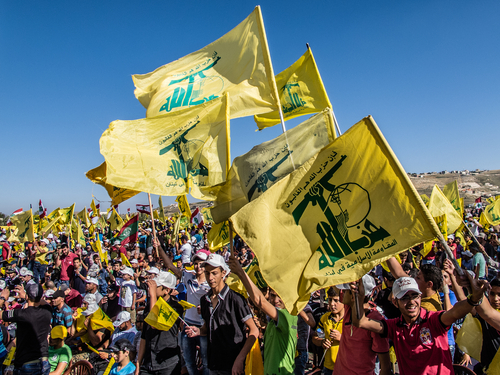
Hezbollah’s new leader, Naim Qassem, intensifies threats against Israel following the assassination of Hassan Nasrallah. Any hope that things would cool in the Middle East anytime soon is fading quickly. In fact, tensions are escalating even more.
Hezbollah’s New Leadership and Rising Tensions
Following the assassination of former Hezbollah leader Hassan Nasrallah, Naim Qassem has taken charge, aggressively escalating tensions with Israel. Israeli Prime Minister Benjamin Netanyahu was specifically targeted in a drone strike by Hezbollah. Qassem accused Netanyahu of being “frightened” after the attack, signaling a new phase in their conflict. The exchange was a part of the ongoing hostilities that mark a deadly cycle of retaliation and substantial casualties in the region.
The conflict has resulted in thousands of deaths, with both sides entrenched in military engagements. Qassem warned that the conflict is entering “a new stage” of open warfare against Israel. Despite these tensions, Qassem expressed a willingness to consider a truce, provided the conditions align with Hezbollah’s expectations. The ongoing violence underscores a persistent struggle between the two parties, as both Hezbollah and Israeli forces have suffered significant losses.
Reuters, according to a Hezbollah official: Israel's threats against Naim Qassem will not deter us from continuing our path
— MTV English News (@MTVEnglishNews) October 30, 2024
International Efforts and Regional Responses
International figures, including U.S. officials Brett McGurk and Amos Hochstein, are actively engaging in diplomatic dialogues to address the escalating conflict. Netanyahu remains resolved to counter the threats posed by Hezbollah, promising necessary actions to mitigate the aggression.
The Israeli government is also exploring the deployment of advanced defense systems, such as the £413 million Iron Beam laser interceptor, to counter the increasing aerial threats from Hezbollah.
Amidst the ongoing hostilities, there are talks of a possible ceasefire. Israel is negotiating terms that include Hezbollah’s withdrawal and the deployment of the Lebanese army along the border. However, the devastating impact of the conflict continues, with reports indicating significant casualties. Lebanon’s health ministry reported nearly 2,792 fatalities, hinting at the severe humanitarian crisis developing in the region.
Lebanese armed group Hezbollah named Naim Qassem as its new leader on Tuesday, Oct. 29, but Israel said his tenure would be "temporary", an apparent threat after it killed his predecessor Hassan Nasrallah in Beirut over a month ago.https://t.co/a2McfzLeJu
— CGTN America (@cgtnamerica) October 30, 2024
The Path Forward
Despite the profound tensions, there is a slight possibility of de-escalation. Qassem stated that Hezbollah could agree to a ceasefire if certain conditions are met. Such concessions could pave the way for further diplomatic negotiations, possibly leading to a more sustainable peace agreement. However, the entrenched animosity and continuous exchanges of hostilities provide a challenging backdrop for successful dialogue.
The situation calls for concerted international efforts to mediate and provide humanitarian assistance to affected civilians. While both Hezbollah and Israel showcase military prowess and resolve, the mounting toll of human suffering amplifies the urgency for an effective resolution. Only time will tell whether wary diplomacy can genuinely transform into lasting peace.











